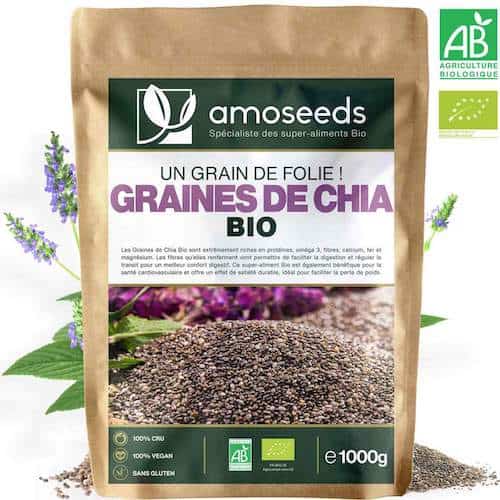We no longer count the number of medications on the market that help combat digestive problems…yet there are many natural remedies!
Certain foods are particularly effective for treating constipation naturally, whether in adults or children, so don’t deprive yourself of them.
Here is our top 5 of the best natural laxatives. To fully understand how they work, see the list below.
1. Chia Seeds
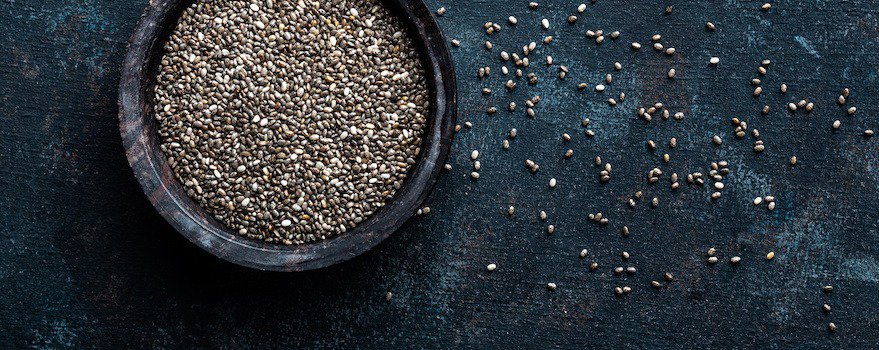
Chia seeds (Salvia hispanica) are composed of up to 40% fiber! That’s why they are such valuable natural laxatives…
They are also an interesting source of magnesium and vitamin B9, which helps relieve constipation by stimulating the production of digestive acids.
Chia seeds can be enjoyed in countless ways: mixed with yogurt, salad, soup…
Buckwheat and chia seed porridge is an interesting recipe in case of constipation:
- Mix 3 tablespoons of buckwheat flakes, 1 tablespoon of oat bran, and chia seeds
- Add a bit of soy milk and let the mixture sit in the fridge overnight.
- The next day, add to the mixture 1 tablespoon of dried fruits and seeds (hazelnuts, almonds…), a pinch of cinnamon and nutmeg, and don’t forget 2 small cloves
- Enjoy!
Buy organic chia seeds: my selection
I recommend the organic chia seeds from the French brand amoseeds.
We recommend (and consume!) amoseeds superfoods because their founders source directly from local organic cooperatives.
They thus offer very high-quality products, at a low price.
We have negotiated a promo code for our readers: use “DARWIN” at checkout to get 5% off all their products (and up to 25% by purchasing the same product multiple times).
❤ I love: The very good value for money, the quality of the seeds, and the very positive customer reviews of the brand.
★ Customer reviews: 4.9/5
☞ Quantity: 1 kg / 100 portions
✔ Discount code -5%: DARWIN
2. Psyllium
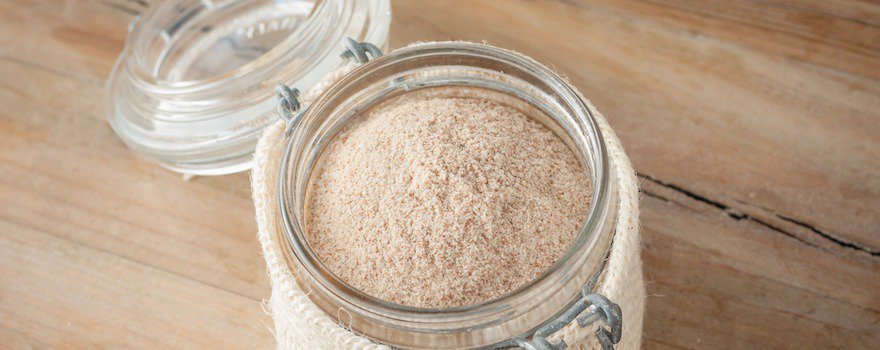
Psyllium (Plantago ovata) is a plant native to Asia whose seeds are used to treat digestive problems. Surrounded by a protective shell called “husk,” each psyllium seed is rich in fiber as well as mucilage.
This natural substance swells and becomes viscous when in contact with water. Once in the intestine, psyllium mucilage retains water and softens stools – making it an excellent natural laxative.
We advise you to choose blond psyllium rather than brown (Plantago afra) which contains less mucilage. Psyllium is most often offered in powder form, to be mixed in fruit juice, a smoothie, or even in a cake.
Naturally gluten-free, psyllium is an excellent substitute for celiac individuals.
3. Aloe Vera
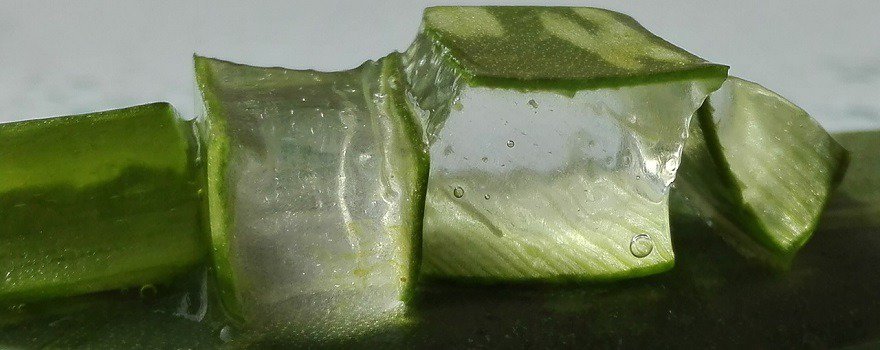
Aloe vera (Aloe barbadensis Miller) is a succulent plant rich in water used forever as a natural remedy for many everyday issues. It is therefore very hydrating for the body but not only.
Aloe vera also contains a significant amount of nutrients beneficial for transit: magnesium, vitamin C, and B9 as well as anthranoids, molecules with powerful laxative effects.
It is possible to find aloe vera gel in stores directly extracted from fresh leaves. It can be mixed with fruit juices, smoothies, or even cold soups like gazpacho.
You can also opt for aloe vera juice or healthy drinks based on aloe vera provided that the Aloe barbadensis content remains predominant.
Buy organic aloe vera: my selection
I recommend the organic aloe vera juice from the brand Natura Force. It is cold-pressed and comes from Andalusia in Spain.
I recommend this juice because it is made from fresh leaves handpicked on the same day, which is particularly rare.
We really like Natura Force: it’s a small French company based in Southern France, launched in 2015 by Thierry Sestrieres after a trip to South America rich in superfood discoveries.
By using our promo code “DARWIN” you get a 10% discount on all products, and you help us keep our blog running because Natura Force is a partner.
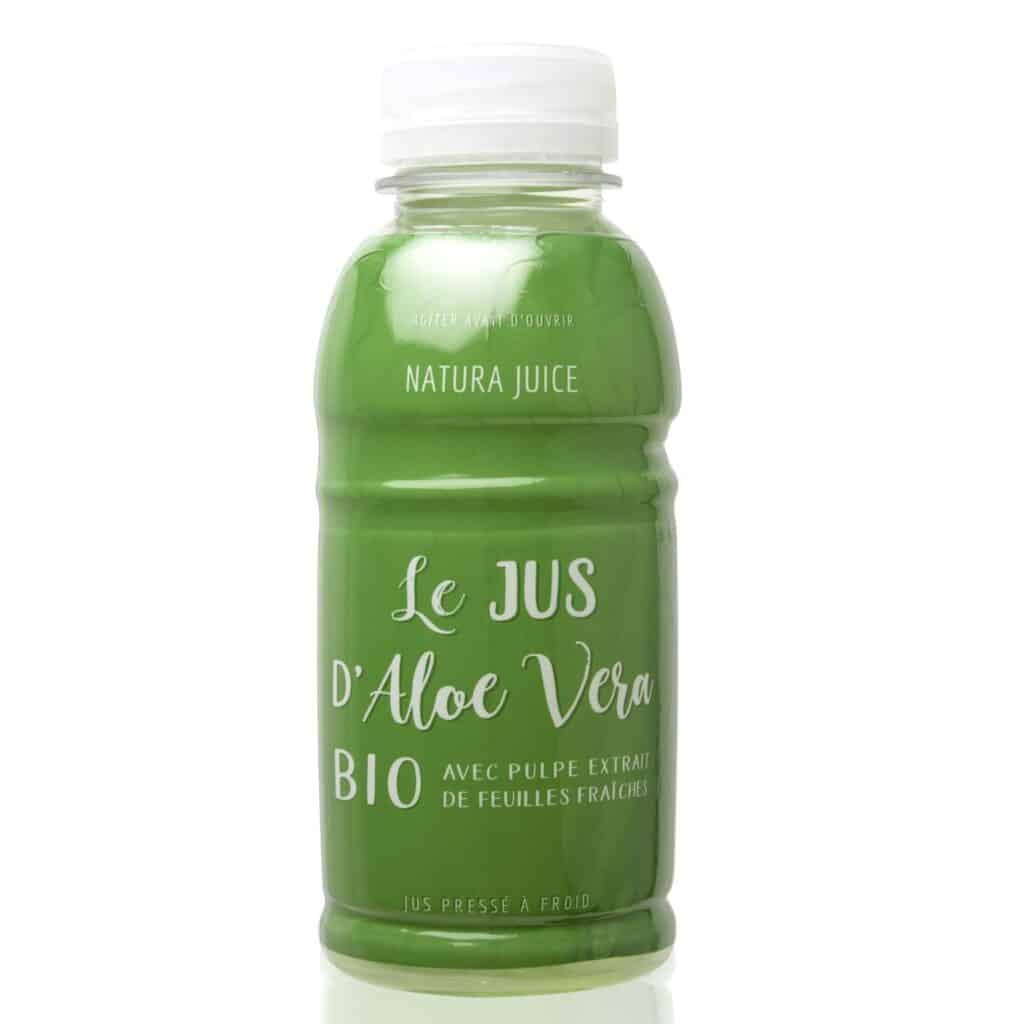
❤ I love: Organic certification, production quality, and controlled origin.
★ Customer reviews: 4.7/5
☞ Quantity: 330 mL
✔ Discount code -10%: DARWIN
4. Black Radish
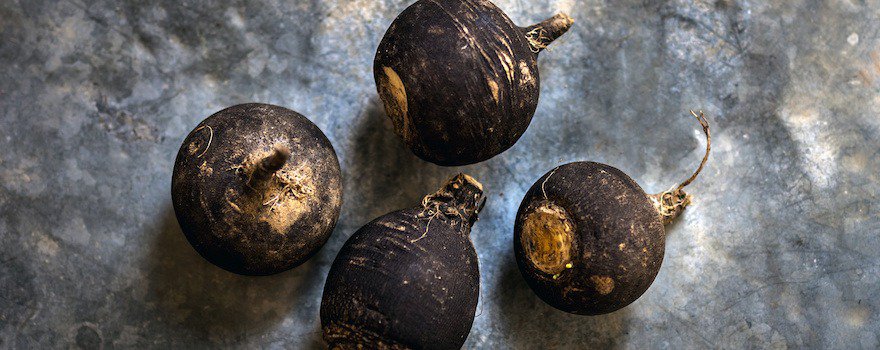
When consumed fresh, black radish (Raphanus sativus) is a boon for fighting constipation. It is first a good source of fiber (1.90 g per 100 g) and vitamin C (114 mg per 100 g) that increase the water content in the intestines and help soften stools.
Black radish is also rich in potassium whose deficiency can slow down transit.
Black radish has a fairly strong and pungent taste, similar to rutabaga. To enjoy its benefits on transit, cut it into thin slices and consume it raw like carpaccio, with a drizzle of olive oil, pepper, salt, and lemon.
5. Flax Seeds
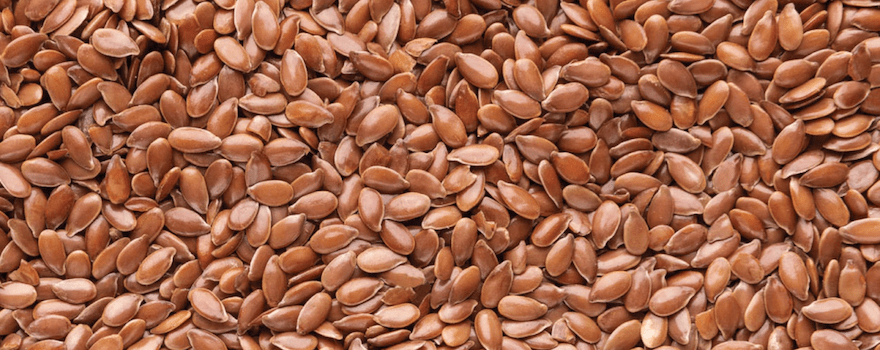
Thanks to their exceptional fiber content (27.3 g per 100 g), cultivated flax seeds (Linum usitatissimum) are essential foods for relieving constipation.
Like psyllium, flax seeds contain mucilage that swells and becomes viscous in the intestine. They are excellent for promoting stool evacuation.
You can incorporate flax seeds into many savory or sweet recipes. Their slight nutty flavor pairs perfectly with breakfast cereals, cakes, breads…
You can also coarsely crush 1 teaspoon of flax seeds and mix them with 150 ml of water to allow the mucilage to swell. Let it sit overnight and drink it the next morning.
Nutrients Good for Transit
What is Constipation?
Constipation is an intestinal disorder characterized by a decrease in stool frequency. In adults, constipation is defined as a frequency of less than 3 times per week. This change in stool rhythm is accompanied by other symptoms:
- Hard and small stool consistency
- Difficulty or even pain when going to the toilet
- Abdominal pain
- Sensation of discomfort, cramps, and bloating
Constipation is the result of a slowing down of stool progression in the colon, also known as the “large intestine.” There are two types: occasional (or transient) constipation and chronic constipation.
As the name suggests, occasional constipation occurs at a specific event and lasts only a few weeks. However, when it lasts more than 6 months and symptoms persist, it is no longer considered transient but chronic constipation. In this case, don’t hesitate to seek advice from your doctor.
The causes of constipation are multiple and varied. Occasional constipation occurs most often during pregnancy, when traveling, or after changes in dietary habits. When symptoms persist, they may hide an underlying condition: diabetes, thyroid disorders, colon disease…
Taking certain medications can also lead to chronic constipation.
Finally, certain factors promote intestinal laziness. Lack of physical exercise and a sedentary lifestyle, poor or unbalanced diet, age, stress, and anxiety disorders… are all factors that can lead to constipation.
Fibers, Essential for Transit
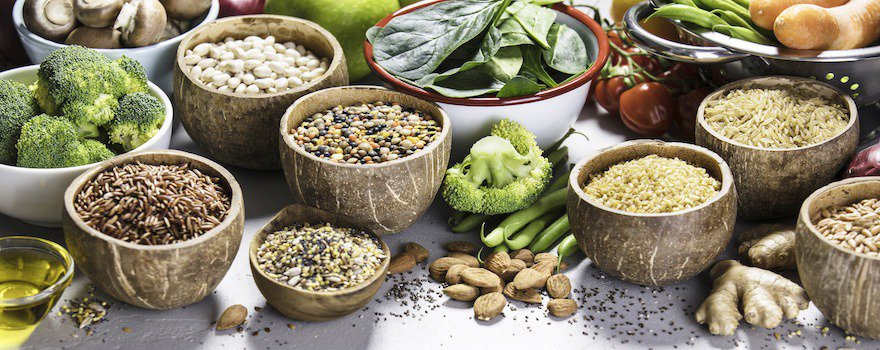
Dietary fibers are among the best nutrients to prevent and relieve intestinal disorders such as constipation. Thanks to their action in the colon, they increase stool frequency until a usual rhythm of emission is restored. Fibers also improve stool consistency for more comfortable evacuation.
To achieve this, dietary fibers absorb and retain water in the colon, which accelerates transit. Moreover, they nourish the beneficial microorganisms of the intestinal microbiota (formerly known as intestinal flora).
A large amount of fiber can be found in vegetables (peas, artichokes, leeks…) and legumes (lentils, split peas, chickpeas…), in dried nuts (almonds, dried figs, prunes…), fresh fruits (berries, apples, pears), and cereal products (wheat bran, whole rice…).
Magnesium acts as a mild laxative
Constipation can be one of the symptoms of a magnesium deficiency. It is therefore important to restore good magnesium levels to improve intestinal transit. Indeed, this trace element acts as a mild laxative.
On one hand, like fiber, magnesium increases the volume of water in the digestive tract and has a stimulating effect on the intestine. On the other hand, magnesium is a natural muscle relaxant. By allowing the relaxation of the muscles of the intestinal wall, it facilitates the evacuation of stools.
Sardines, nuts, seafood, buckwheat, spinach, and dried bananas are good sources of magnesium.
Water improves the movement of stools through the intestines

Good hydration is key to relieving the symptoms of constipation. Indeed, the more water you drink during the day, the more hydrated the stools are, and the easier it is for them to move through the intestines.
It is therefore recommended to drink between 2 and 2.5 liters of water per day. Ideally, choose a mineral water rich in magnesium.
Probiotics, beneficial for the intestinal microbiome

Probiotics are micro-organisms naturally present in the intestinal microbiome. They exert a bactericidal action to prevent infections.
But probiotics are also effective against constipation. On one hand, they supplement the existing microbial flora and boost its activity. Then, they promote contractions of the large intestine to facilitate stool evacuation.
Some foods are naturally rich in probiotics. This is notably the case with fermented milk, fermented cabbage, kefir, miso, and spirulina.
But you can also turn to dietary supplements containing selected and effective strains.
Lire aussi l Acheter des probiotiques : nos conseils pour bien choisir
Buying natural probiotics: my selection
So I recommend Nutri&Co’s flavonoid probiotics. These contain 9 strains, including 3 patented, as well as prebiotics (the flavonoids).
This probiotic-prebiotic combination is rare and difficult to implement in a capsule.
I really like Nutri&Co because it’s a particularly sharp French laboratory (check out their blog in particular). By eliminating all intermediaries, the startup can offer high-quality products at an affordable price.
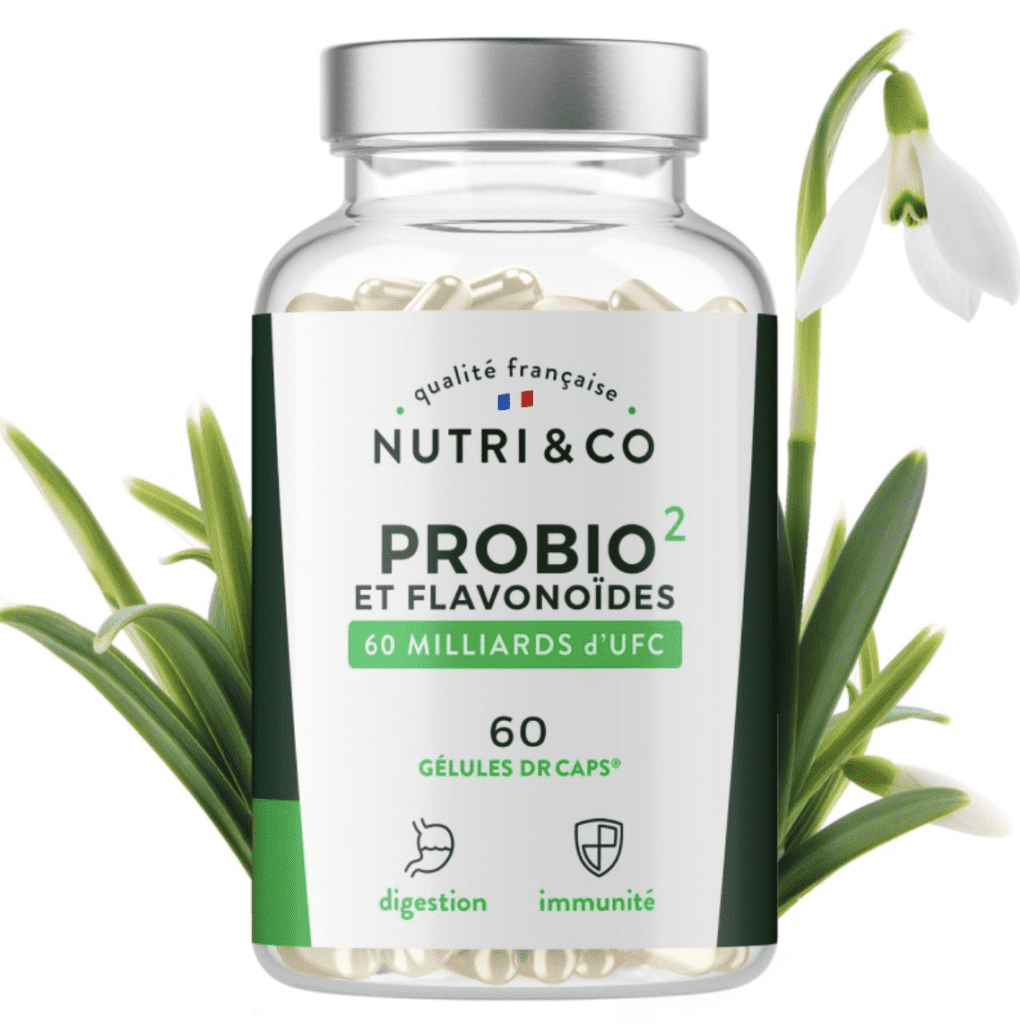
❤ I love: The excellent value for money, the transparency about the origin of raw materials, the effectiveness noticed by users on Amazon.
★ Customer reviews: 4.7/5
☞ Quantity: 60 capsules / 1 to 2 months treatment
✔ Nutri&co promo code: Click here



